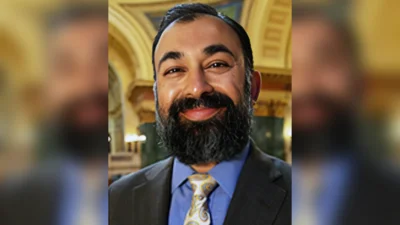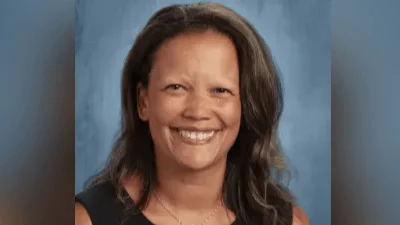Jodi Habush Sinykin, Wisconsin State Senator for 8th District | Facebook
Jodi Habush Sinykin, Wisconsin State Senator for 8th District | Facebook
According to the Wisconsin State Legislature's official website, the bill was described as follows: "local regulation of pesticides to protect pollinators".
The following is our breakdown, based on the actual bill text, and may include interpretation to clarify its provisions.
In essence, this bill permits political subdivisions in Wisconsin, such as cities, villages, towns, or counties, to regulate pesticides specifically to protect pollinators and pollinator habitats. Previously, political subdivisions were generally prohibited from regulating pesticides, though some exceptions existed, such as for stormwater management or solid waste containing pesticides. The bill expands these exemptions, allowing local regulations aimed at safeguarding insects that pollinate flowers. This new measure intends to enhance environmental protection efforts by enabling targeted pesticide regulation at the local level, with a focus on preserving vital pollinator populations and their natural habitats.
The bill was co-authored by Representative Lee Snodgrass (Democrat-52nd District), Senator Tim Carpenter (Democrat-3rd District), Senator Kristin Dassler-Alfheim (Democrat-18th District), Senator Dora E. Drake (Democrat-4th District), Senator Sarah Keyeski (Democrat-14th District). It was co-sponsored by Representative Clinton M. Anderson (Democrat-45th District), Representative Deb Andraca (Democrat-23rd District), and Representative Margaret Arney (Democrat-18th District), along 30 other co-sponsors.
Jodi Habush Sinykin has authored or co-authored another 41 bills since the beginning of the 2025 session, with none of them being enacted.
Sinykin graduated from the University of Michigan in 1989 and again in 1992 from Harvard Law School with a JD.
Sinykin, a Democrat, was elected to the Wisconsin State Senate in 2025 to represent the state's 8th Senate district, replacing previous state senator Dan Knodl.
In Wisconsin, the legislative process starts when a senator, constituent, group, or agency proposes an idea for a bill. After drafting, the bill is introduced, numbered, and referred to a committee for review and public input. If approved, it moves through three readings and votes in both the Senate and Assembly. Once both chambers pass the same version, the bill goes to the governor, who can sign it, veto it, or let it become law without a signature. Only a small share of bills introduced each session ultimately become law. You can learn more about the Wisconsin legislative process here.
| Bill Number | Date Introduced | Short Description |
|---|---|---|
| SB292 | 05/30/2025 | Local regulation of pesticides to protect pollinators |
| SB232 | 04/29/2025 | Grants to child advocacy centers. (FE) |
| SB212 | 04/16/2025 | The form of referendum questions |
| SB175 | 04/03/2025 | Local building permit fees for certain improvements of residences of disabled veterans. (FE) |
| SB150 | 03/21/2025 | Passing legislation to reduce carbon emissions |
| SB122 | 03/07/2025 | Limitations on the total value of taxable property that may be included in a tax incremental financing district created in the city of Port Washington. (FE) |





 Alerts Sign-up
Alerts Sign-up